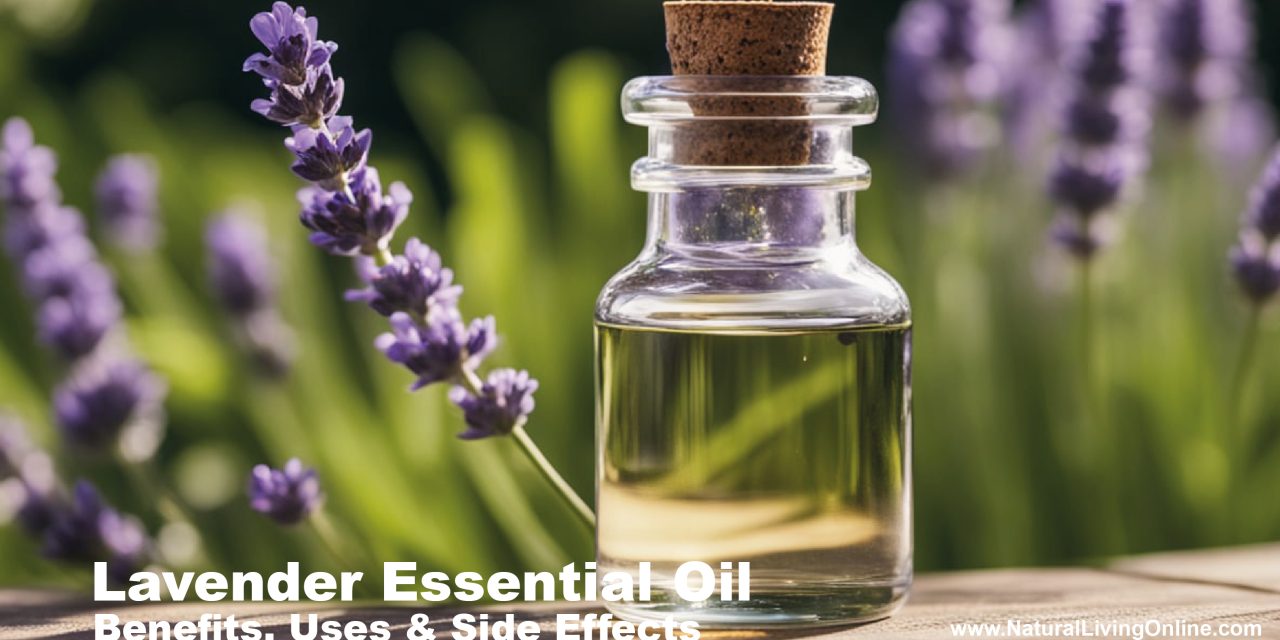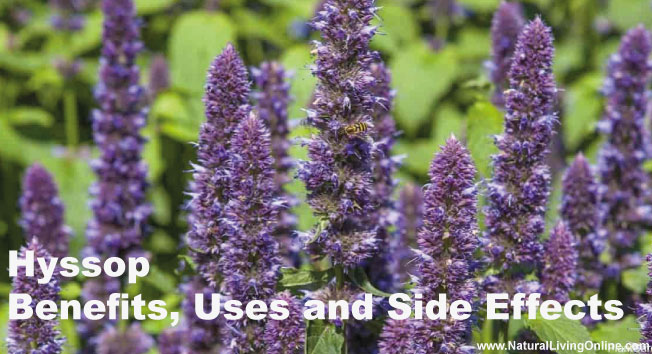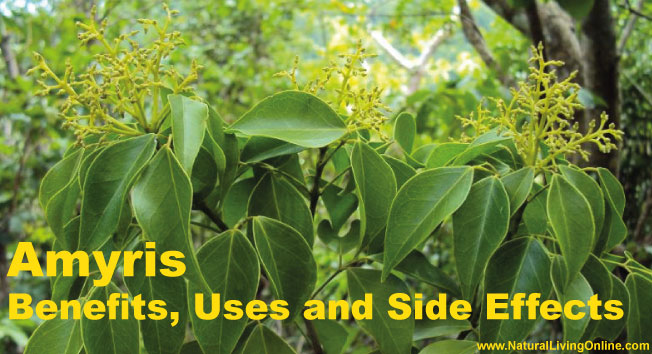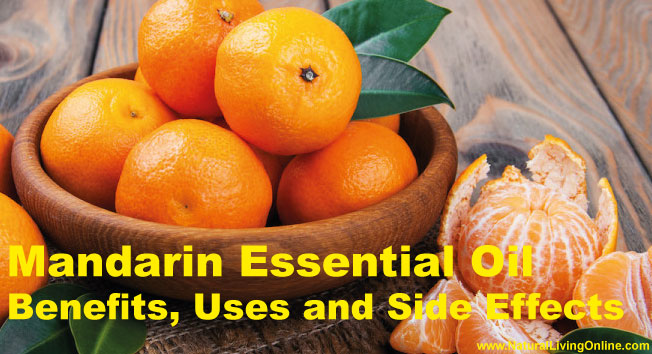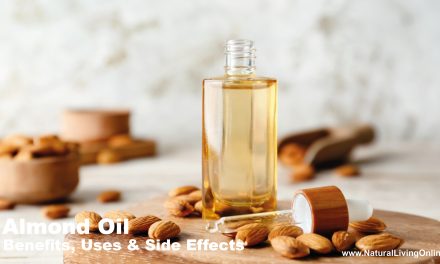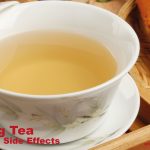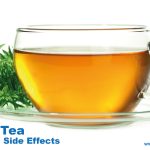Lavender essential oil is celebrated for its calming and therapeutic properties. Extracted from the flowers of the lavender plant, this essential oil has been used for centuries in aromatherapy and natural medicine. Boasting a complex chemical composition, lavender essential oil carries benefits that range from reducing anxiety to treating fungal infections. Its versatile nature and pleasing fragrance make it a popular addition to many cosmetic and therapeutic products.
With its broad spectrum of applications, lavender essential oil can be used in various methods such as diffusion, topical application, and even in bath products. While generally considered safe for most people, it is important to be aware of possible side effects, especially in sensitive individuals or when used improperly. The rigorous application of lavender essential oil aligns with a holistic approach to health and wellness, often complementing other natural remedies and promoting mental health.
Key Takeaways
- Lavender essential oil offers mental and bodily soothing effects and serves as a natural remedy for anxiety and stress.
- The oil can be applied in multiple ways, including aromatherapy, and has cosmeceutical applications stemming from its antibacterial properties.
- While lavender essential oil is largely safe, it is essential to heed proper usage guidelines to avoid potential adverse reactions.
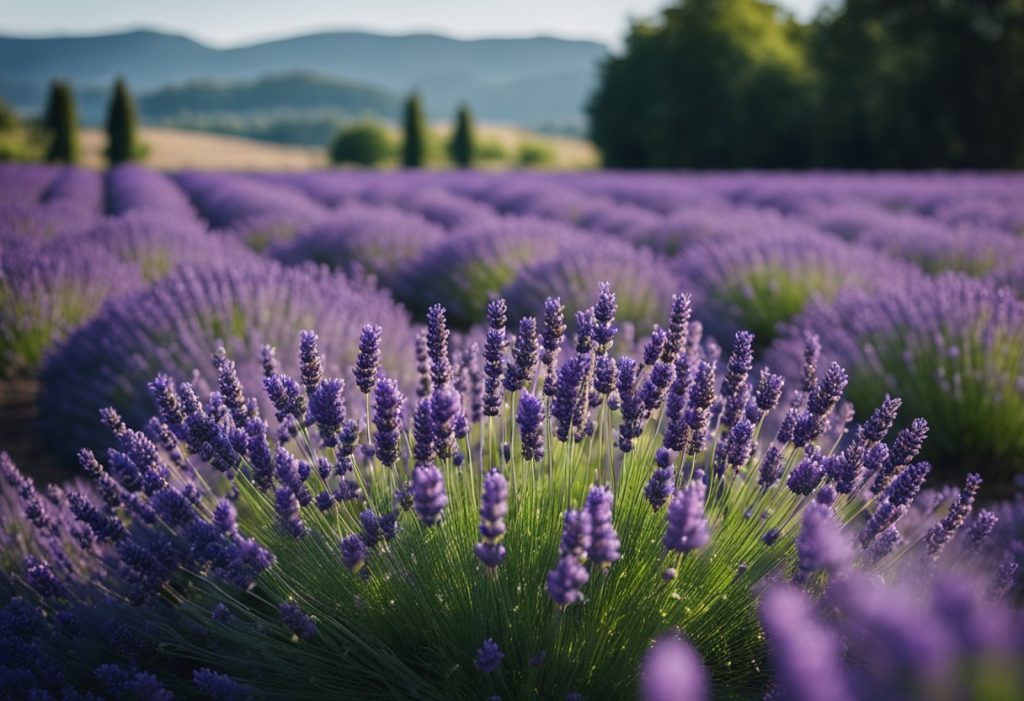
Essential Oil Profile
Botanical Name: Lavandula angustifolia
Common Names: Lavender
Plant Family: Lamiaceae (mint family)
Countries of Origin: Native to the Mediterranean region, particularly in countries like France, Spain, and Italy. It’s also cultivated in various other regions around the world.
Extraction Method: Lavender essential oil is typically extracted through steam distillation of the flowers.
Parts Used: Flowers
Essential Oil Smell: Lavender essential oil has a sweet, floral aroma with herbaceous undertones.
Essential Oil Color: Clear to pale yellow.
Viscosity: Thin
Perfumery Note: Middle Note
Strength of Aroma: Medium
Blends Well With
- Citrus oils like lemon and bergamot
- Floral oils such as rose and chamomile
- Woody oils like cedarwood and sandalwood
- Herbal oils like peppermint and eucalyptus
Therapeutic Properties
- Calming
- Relaxant
- Antidepressant
- Analgesic (pain-relieving)
- Antimicrobial
- Anti-inflammatory
- Antioxidant
Uses
- Aromatherapy: Lavender oil is widely used in aromatherapy to promote relaxation, reduce stress and anxiety, and improve sleep quality.
- Skincare: It’s used in skincare products for its soothing properties and ability to alleviate skin irritations such as burns, cuts, and insect bites.
- Haircare: Lavender oil is added to hair products for its purported ability to promote hair growth and improve scalp health.
- Home Care: It’s used in household cleaners and air fresheners for its pleasant aroma and antimicrobial properties.
Contraindications
- Lavender essential oil is generally safe for most people when used appropriately. However, it should be avoided by individuals who are allergic to lavender or have sensitive skin.
- Pregnant and breastfeeding women should consult with a healthcare professional before using lavender oil.
Side Effects
- In some rare cases, lavender oil may cause skin irritation or allergic reactions. It’s recommended to perform a patch test before using it topically.
- Ingestion of lavender oil can be toxic and should be avoided.
Types
- Lavender essential oil primarily comes from Lavandula angustifolia, but there are other Lavandula species that produce lavender-scented oils, such as Lavandula latifolia and Lavandula x intermedia.
Chemical Constituents with Percentages
- Lavender essential oil contains various chemical constituents, including:
- Linalool (25-45%)
- Linalyl acetate (20-40%)
- 1,8-cineole (1-5%)
- Camphor (1-15%)
- Terpinen-4-ol (1-10%)
- Borneol (1-5%)
The percentages can vary depending on factors such as the plant’s growing conditions and the extraction method used.
Therapeutic Uses and Effectiveness
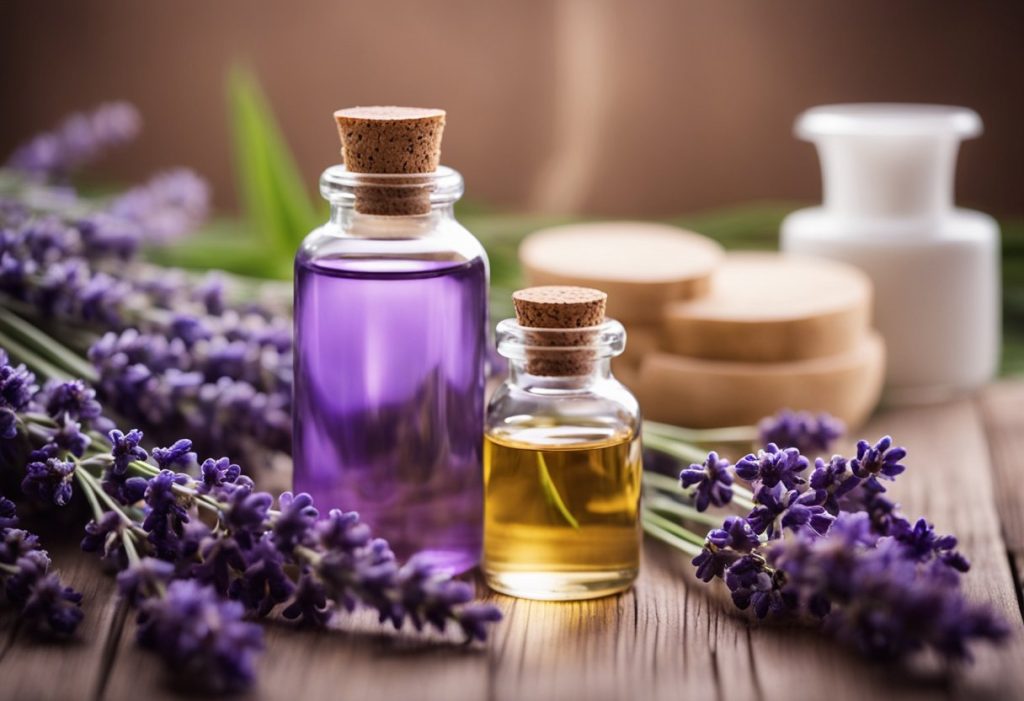
Lavender essential oil is renowned for its wide range of therapeutic benefits. These include promoting better sleep, reducing anxiety, managing pain, and caring for the skin.
Promoting Relaxation and Sleep
Lavender essential oil is commonly used for its sedative properties, which can aid in enhancing the quality of sleep. Scientific studies support its effectiveness in combating sleep disorders such as insomnia. By creating a calming environment, lavender oil helps in improving relaxation and thus promoting restful sleep.
Alleviating Anxiety and Stress
This essential oil is also known for its ability to alleviate stress and anxiety. In clinical settings, lavender aromatherapy has been shown to reduce anxiety levels, possibly by impacting the nervous system. Its anxiolytic effects suggest a potential role for lavender in anxiety management protocols and stress reduction practices.
Pain Relief and Headache Management
Lavender oil has analgesic properties that can be beneficial in managing pain, including easing tension headaches. Massage therapy using lavender oil may provide relief from muscular pain as well, highlighting its role in pain management strategies.
Skin Care Applications
Topical applications of lavender oil can have several beneficial effects on skin health. It has been utilized for wound healing, reducing skin irritation, and combatting inflammatory conditions such as acne, eczema, and psoriasis. The antimicrobial properties of lavender assist in keeping the skin clean and aiding in the maintenance of a healthy skin barrier.
Methods of Application and Uses
Lavender essential oil is versatile, offering various application methods to suit individual preferences and health concerns. It can provide calming aromatherapy benefits, serve as a component in topical treatments, and be a fragrant addition to daily rituals.
Aromatherapy Benefits
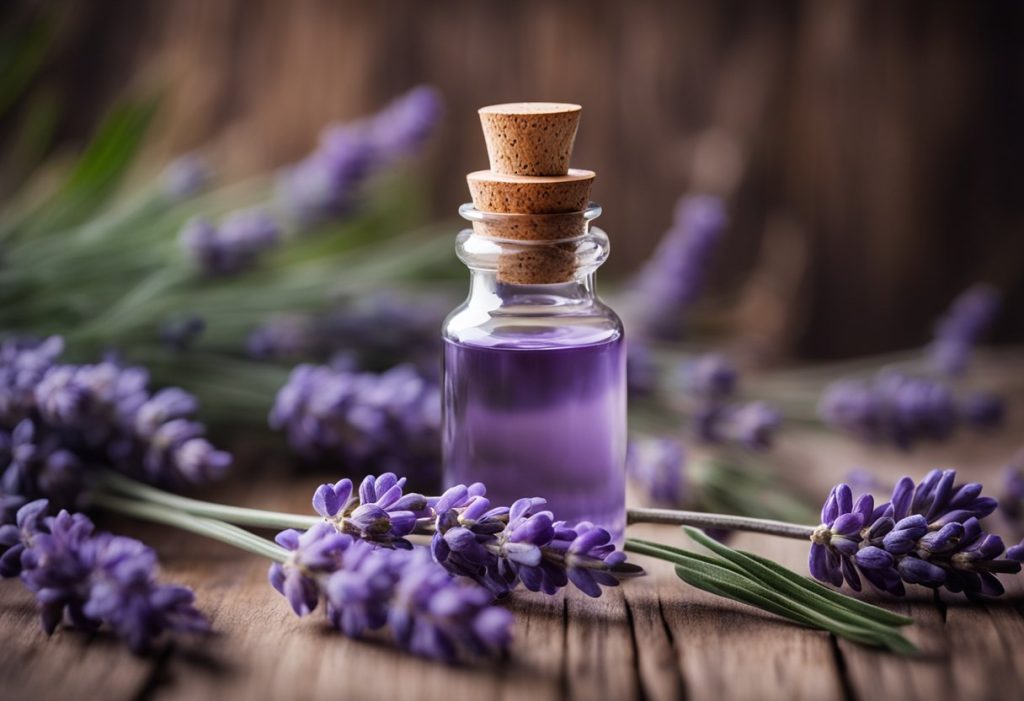
Using lavender oil in a diffuser as a form of aromatherapy is a common practice. The inhalation of lavender’s aromatic molecules can have a calming effect on the nervous system, aiding in relaxation and stress reduction. Studies suggest that when lavender oil is used for aromatherapy, it can alleviate anxiety and improve sleep quality.
Topical Applications
Lavender oil can be applied topically when diluted with a carrier oil to create a soothing massage oil. It’s often used for its anti-inflammatory and analgesic properties to relieve minor burns, cuts, and insect bites. Lavender-infused lotions may also help hydrate the skin and reduce the occurrence of acne. When applying lavender oil topically, it is crucial to ensure proper dilution to prevent skin irritation.
Incorporating Lavender Oil in Daily Routine
Integrating lavender oil into one’s daily routine is simple. Incorporating a few drops of lavender essential oils into a warm bath can create a relaxing experience. Lavender tea, made from the buds of the lavender plant, can be enjoyed for its calming properties. Additionally, the oil can be added to a steam inhalation process to clear the sinuses or as a natural fragrance to freshen up the home environment.
Side Effects and Precautions
When considering the use of lavender essential oil, one needs to be aware of possible side effects and necessary precautions. While lavender is enjoyed for its fragrance and potential health benefits, its use is not without risk, particularly when used in excess or applied improperly.
Side Effects
Common:
- Headaches
- Palpitations
In some individuals, the oil, when ingested, has been noted to cause:
- Constipation
- Diarrhea
Allergic Reactions
Some may experience allergic skin reactions, including:
- Irritation
- Redness
Precautions
Pregnancy:
Lavender should be used with caution by those who are pregnant. The safety of concentrated forms during pregnancy is not well established.
Children:
Usage in children should be under the guidance of a healthcare provider.
Dosage:
Proper dosage is key, as excessive use could intensify side effects.
Before Surgery:
Patients scheduled for surgery should avoid lavender, as it might slow down the central nervous system, combined with anesthesia and other medications during and after surgery.
Oral Consumption:
When ingested, the safety of lavender is considered possibly safe in food amounts. Caution is advised when consuming lavender as a medicine.
It is crucial to consult a healthcare provider before using lavender essential oil, especially for those with pre-existing conditions, pregnant women, or children. This helps ensure the safe use of the oil without adverse effects.
Cosmetic Applications
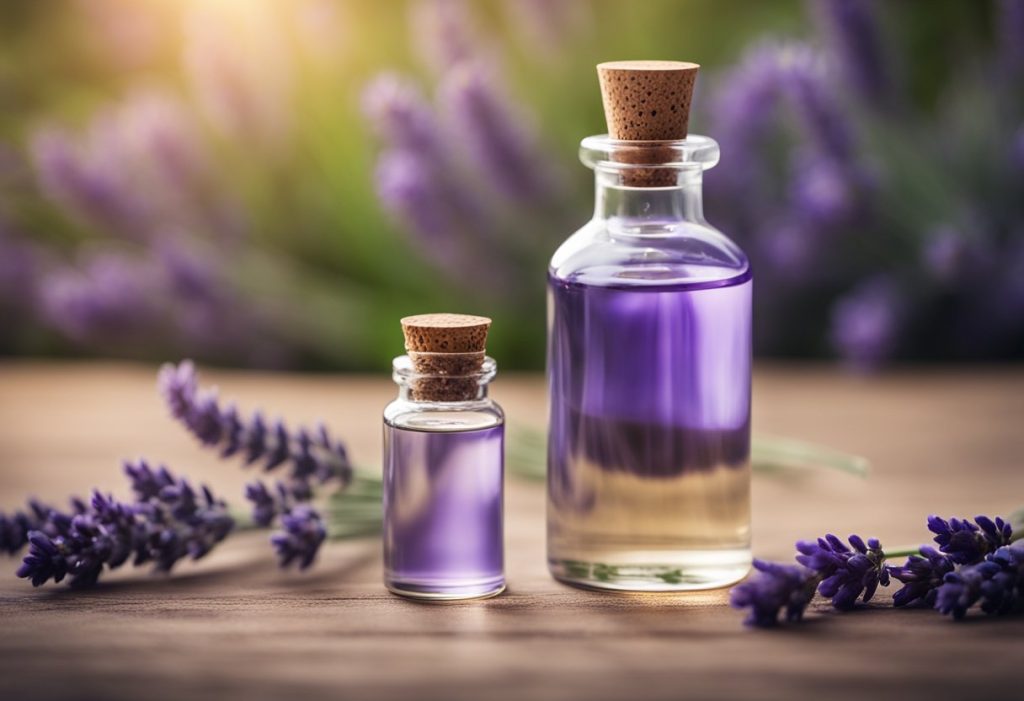
Lavender oil is renowned in cosmetic products for its distinct fragrance and potential skin benefits. Rich in antioxidants, it’s often incorporated into creams and lotions, playing a dual role of skin nurturer and a natural perfume.
Skin Care: Lavender oil is used to help improve various skin conditions. Its purported anti-inflammatory properties aid in reducing redness and blotchiness, leading to a more even skin tone. Regular application may also foster collagen synthesis, contributing to skin elasticity and firmness.
Hair Care: When it comes to hair, lavender oil is sometimes applied to promote hair growth and counter hair loss. It’s touted to stimulate hair follicles and enhance blood circulation in the scalp.
The application of lavender oil in cosmetics goes beyond functional; it adds a sensory pleasure to daily beauty routines. Below is a breakdown of lavender oil’s roles in cosmetics:
| Application | Benefit |
|---|---|
| Skin Creams | Reduces inflammation & promotes even skin tone |
| Shampoos | Encourages hair growth and helps prevent hair loss |
| Aromatherapy | Provides a calming scent to products |
Its soothing fragrance makes it a favorite in aromatherapy and spa treatments. However, users should proceed with caution as lavender oil can provoke allergic reactions in some individuals. Patch tests are recommended before widespread use, particularly for those with sensitive skin.
In summary, lavender oil is a versatile component in cosmetics, admired for its aesthetic contribution and skin and hair care properties.
Integrating with Other Natural Remedies
When considering lavender essential oil, one can enhance its effectiveness by combining it with other essential oils and herbal supplements. Careful integration can leverage the potential benefits and tailor the remedy to individual needs.
Combining with Other Essential Oils
Jojoba Oil: When mixed with jojoba oil, lavender essential oil’s properties can be better absorbed by the skin, as jojoba oil is structurally similar to human sebum.
Coconut Oil: Using coconut oil as a carrier can enhance skin hydration when used with lavender essential oil, creating a soothing and moisturizing blend beneficial for dry skin conditions.
Tea Tree Oil: For those aiming to tackle skin concerns, tea tree oil pairs well with lavender essential oil, combining antimicrobial action with calming effects.
Mint Oils: Adding a mint-based oil, such as peppermint or spearmint, introduces a refreshing, cooling sensation, which can be particularly comforting in balms for muscle relaxation.
Synergy with Herbal Supplements
Chamomile Tea: Lavender essential oil can be diffused in a room where chamomile tea is consumed to enhance relaxation and promote better sleep due to the complementary sedative properties of both.
Other Teas: Incorporating a few drops of lavender oil into herbal teas, specifically those containing mint, can aid digestion and offer a calming aroma and taste.
Almond Oil: When used as a carrier oil for lavender essential oil, almond oil offers additional vitamin E benefits, promoting skin health and potentially enhancing the anti-inflammatory effects of lavender.
By integrating lavender essential oil with other natural remedies, individuals can create customized and multipurpose blends tailored to their personal wellness goals.
Impact on Mental Health and Mood
Lavender essential oil is often considered for its potential effects on mental health, particularly regarding anxiety disorders and depression. Researchers have found that the active components in lavender may interact with the nervous system, promoting a sense of calmness and relaxation.
Among its purported benefits, lavender oil is widely recognized for its sedative properties. It is believed to enhance overall mood and possess anxiolytic (anti-anxiety) effects. A systematic review suggests the inhalation of lavender oil could provide an effective intervention for decreasing anxiety across diverse situations. Regular use of lavender oil as aromatherapy has been linked to improvements in mood and mental health.
When it comes to depression, some studies suggest lavender oil can be an adjunct to traditional treatments. It has components that could help in the prevention and treatment of depressive symptoms, although more research is necessary.
| Benefits for Mental Health | Description |
|---|---|
| Anxiety Reduction | Can decrease symptoms of anxiety disorders. |
| Mood Improvement | May enhance mood and induce relaxation. |
| Sedative Effects | Helps to calm the nervous system. |
However, it’s essential to note that while lavender oil can support mental health, it should not replace conventional treatment for serious psychological disorders. Side effects are rare when used appropriately, but include potential skin irritation or allergic reactions. It is advised to consult with a healthcare provider before using lavender essential oil as a complementary therapy.
Consumption and Internal Use
When considering the internal use of lavender essential oil, it is critical to understand its potential as a supplement and to follow strict guidelines for ingestion to ensure safety.
Lavender Oil as a Supplement
Lavender oil, when prepared appropriately, can be encapsulated and marketed as a supplement. One such preparation is Silexan, an oral lavender oil capsule that has been used in treating anxiety. The standard dosage recommended for Silexan is typically 80 mg per day, although it’s essential to adhere to the product-specific recommendations. It’s worth noting that, as a supplement, lavender oil is not regulated by the FDA like conventional medicine, and its efficacy may not be universally endorsed by the medical community.
Guidelines for Ingesting Essential Oils
Ingesting essential oils such as lavender should never be taken lightly; it must be done with caution. Here are specific guidelines:
- Capsules: If ingesting, only use products specifically designed for oral use.
- Dosage: Extremely important, should only be determined by a healthcare provider.
- Medicine Interaction: Before ingesting, consult with a healthcare professional to avoid adverse interactions with other medications.
- Quality: Ensure the essential oil is of therapeutic grade, pure, and intended for internal use.
- Extraction Method: The oil should be properly extracted to be suitable for consumption.
Ingestion of essential oils should only be considered with a clear understanding of all associated risks and under professional guidance. Lavender extract taken orally should only be done with specific, safe formulations designed for human consumption.
Frequently Asked Questions
What are the potential benefits of lavender essential oil for skin health?
Lavender essential oil is often applied to the skin for its soothing properties and can help calm irritation and redness. Some also use it to help alleviate the discomfort from bug bites and minor burns.
How can lavender essential oil be incorporated into a sleep routine?
To enhance sleep quality, lavender essential oil can be used in diffusers or applied to pillowcases. Its calming scent is believed to aid in relaxation and promote a more restful sleep.
Are there any hormonal side effects associated with the use of lavender essential oil?
While lavender essential oil is generally considered safe, there is some research suggesting it could have estrogenic and anti-androgenic effects, potentially influencing hormone levels when used excessively.
What are common uses of lavender essential oil in daily wellness practices?
Lavender essential oil is commonly used for stress relief through aromatherapy, added to baths for relaxation, or applied in massage oil to soothe the body. Additionally, it may be found in homemade cleaning products due to its pleasant scent and reported antibacterial properties.
Who may be advised to avoid using lavender essential oil?
Individuals with allergies to lavender should avoid using the oil, as should those planning to undergo surgery due to its potential sedative effects. Pregnant or breastfeeding women are often advised to consult with a healthcare provider before use.
Can the topical application of lavender essential oil cause adverse skin reactions?
Yes, like any essential oil, lavender oil can cause allergic reactions or skin irritation for some people, particularly if applied undiluted. Patch tests and dilution with a carrier oil are recommended to minimize risks.
References
The Effects of Lavender Essential Oil and its Clinical Implications in Dentistry: A Review
Lavender essential oil: A review
Anti-inflammatory and antioxidant efficacy of lavender oil in experimentally induced thrombosis
The effect of lavender on stress in individuals: A systematic review and meta-analysis
This website does not provide medical advice.
All information provided on this website, and on associated social media networks, including but not limited to texts, images, and numbers are for general information purpose only. It is not intended as medical advice and it does not include all possible precautions, side effects, or interactions that may occur. Neither NaturalLivingOnline.com nor its author/founder take responsibility for how you use this information. Statements contained on NaturalLivingOnline.com have not been evaluated by the FDA. You should conduct thorough research via multiple sources and consult your physician or qualified doctor before using any essential oil or herbal remedy. Information on NaturalLivingOnline.com must not be relied upon for medical, legal, financial or other decisions.

